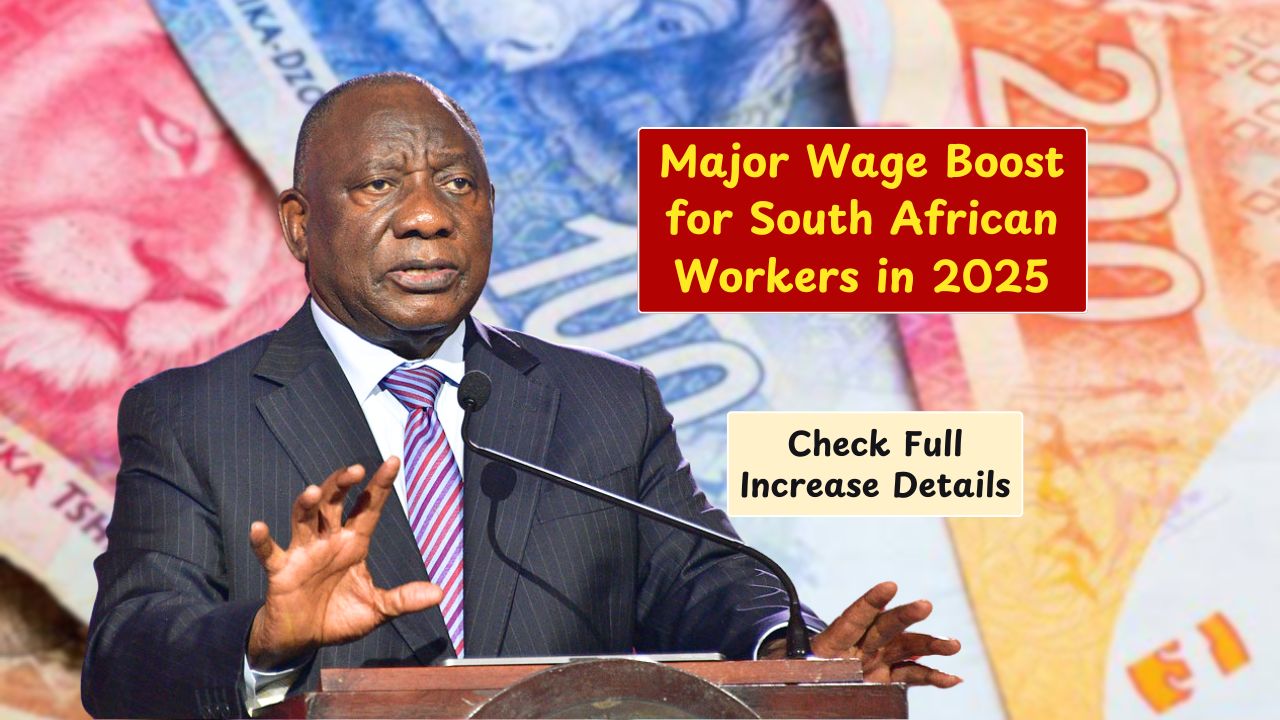Good news for South African workers—2025 is shaping up to be a year of meaningful wage boosts across the board. Whether you’re in the public sector, part of the private workforce, or earning minimum wage, you can expect a little more in your pocket. These increases are part of broader efforts by the government, employers, and unions to tackle rising living costs and boost worker morale.
So, what exactly is changing? Let’s break it down.
Public
If you’re a public sector employee, expect a 5% salary bump in 2025. This follows negotiations between the government and labor unions, which improved upon the initial 4.7% offer. The increase targets essential workers—teachers, nurses, police officers—helping them keep pace with inflation and rising costs.
Here’s how it helps:
- Increased financial stability
- Boosted retirement and medical aid benefits
- Better employee satisfaction and retention
If you’re working in this sector, now’s a great time to check in with HR or your union to understand how the raise affects your full compensation package.
Private
Private sector employees aren’t being left out. On average, salaries are expected to rise by about 5.5%. Some industries are even going higher, especially where demand for skilled workers is through the roof.
These sectors stand out:
- IT and tech: With digital transformation booming, skilled tech professionals are in high demand.
- Healthcare: The sector continues to respond to post-pandemic shortages.
- Engineering and construction: Major infrastructure projects are driving wage growth.
Companies may also roll out performance-based bonuses or role-specific increases. If you’re in the private sector, it might be a good time to revisit your resume, highlight your wins, and ask for that raise.
Minimum
For South Africans earning minimum wage, there’s a planned increase tied to inflation. The national minimum wage, currently R27.58 per hour, is expected to rise to around R28.50 in 2025. That may not sound like a huge jump, but for many workers, every cent matters.
This change benefits:
- Retail workers
- Domestic helpers
- Agricultural laborers
Employers will need to ensure compliance, while workers should double-check payslips and speak up if underpaid.
Union
Unions continue to play a major role in securing better wages. A standout deal in 2025 is the one between the National Union of Mineworkers (NUM) and Sibanye Stillwater. It includes:
- A R900 monthly increase for the lowest earners
- A 5.5% raise for skilled positions like miners and artisans
These kinds of agreements show just how much power unions still hold in shaping wage policy and protecting workers’ rights. Other sectors, like transport and manufacturing, are likely to follow suit with similar negotiations.
Tips
Not sure how to make the most of these increases? Here’s what you can do:
- Review your contract: Make sure your salary reflects the new standards.
- Update your budget: Plan ahead for how to use the extra income wisely.
- Talk to your union: Stay informed on any upcoming negotiations or agreements.
- Upskill: Learn new skills or certifications to increase your value in the job market.
- Seek financial advice: Consider meeting a financial planner to manage raises or bonuses.
Whether it’s a small raise or a sector-wide adjustment, these wage increases in 2025 signal a step in the right direction for South African workers. It’s a welcome relief in tough economic times—and a reminder of how collaboration between the state, businesses, and unions can lead to real, meaningful progress.
FAQs
How much is the public sector raise?
A 5% salary increase for government employees in 2025.
What’s the new minimum wage?
Expected to rise to about R28.50 per hour in 2025.
Which sectors get the biggest raises?
IT, healthcare, and engineering lead with higher increases.
What’s the average private sector raise?
Around 5.5%, depending on industry and performance.
How can I benefit more from wage changes?
Upskill, join a union, and negotiate based on achievements.









